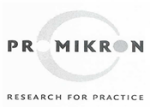Summary
Waste Electrical and Electronic Equipment (WEEE) needs an increasing effort to improve Re-use, Recycling and Recovery (3R). In Europe, the amount of WEEE generated is 12 million ton per year. Only 2.2 million ton is treated (18%). The end of life equipment contains hazardous materials, ferrous and non-ferrous metals, engineering plastics, precious metals, platinum group metals and rare earths metals. WEEE will increase in the coming decades with an expected rate of at least 4% per year, about three times higher than the growth of the average municipal waste. Much of WEEE is exported to Africa, China and India and disassembled under inadequate working conditions. More than 78% of European WEEE is currently land filled or incinerated. The current project will demonstrate that an improved re-use, recycling and recovery (3R) to 95% (based on collected volumes) is possible through better size reduction, smart sensor sorting and advanced separation techniques. The demonstration will take place at equipment manufacturers, research institutions, inviting companies and on the processing sites of the partners, all this augmented by demo tests with additional units to achieve even higher material purities.
WEEE contains a large amount of different engineering plastics that need further separation with advanced innovative separation techniques in order to produce high added value plastics.
WEEE also contains large quantities of recoverable metals such as steel, stainless steel, aluminium, copper, brass, zinc, precious metals (gold and silver), and platinum group metals (platinum, palladium and rhodium, iridium, osmium, ruthenium), and rare earth metals (samarium, europium, yttrium, gadolinium and dysprosium) which are currently hardly recycled. The prices of these metals are expected to increase by 15% annually due to increased demand, quotas, supply shortages and limited number of suppliers.
The key of this project is the demonstration of improved detection, sorting and diagnostic technologies to produce secondary material fractions of high quality with a high 3R potential.
It is the purpose of the REWARD project to demonstrate in a prototype facility the generation of recyclable products from WEEE with high added value for substitution of virgin primary materials and for decreasing dependency on imports. This project will demonstrate advanced separation and sorting techniques as verified by earlier laboratory analyses. A total of 12 major full scale technical unit processes in sequence will be demonstrated in this project. They include:
- coarse size reduction for optimal material liberation and better subsequent separation,
- metal detection sensor sorting for the separation of metals,
- smart magnetic separation for magnetic (steel, iron), weakly magnetic (stainless steels) and strong magnetic materials (magnets, ceramics),
- eddy current separation for conductive non-magnetic metals,
- advanced density separation for polymer and metals (magfluid),
- electro magnetic sorting for non-magnetic stainless steel,
- x-ray fluorescence for the separation of ferrous magnetic metals and copper coils,
- colour sensor sorting for the separation of coloured metals and polymers,
- dual-energy x-ray sensor sorting for the separation of halogenated polymers,
- density separation to remove light plastics from heavy plastics,
- near-Infrared sensor sorting for the separation of polymer types,
- colour sensor sorting for grey and black plastics.
These technologies have never been demonstrated in sequence. The new demonstration plant will generate 18 fractions of high purity suitable for recycling, doubling the amount of high quality fractions generated by the old technology. These improved technologies are required for increased internal EU utilization of discarded e-wastes, reduced environmental and human health impacts from disposed hazardous materials and reduced export of dangerous materials to developing countries. This project will guarantee 40% material recycling and 95% recovery of WEEE (based on collected volumes). The life cycle analyses (LCA) integrating environmental, economic and social aspects will be utilized as tools to quantify the sustainable improvements and to reach optimum recycling. A design of a full scale waste processing sequence of WEEE will be completed on the basis of the demonstration tests. The partners have large dissemination networks to facilitate the introduction of this technology in EU27.





